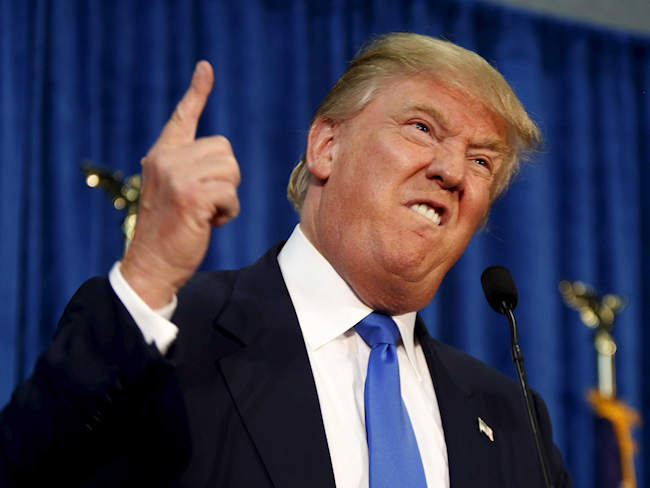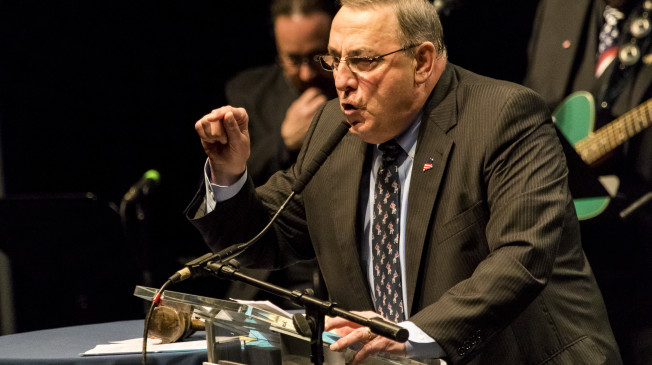
Did the RNC send out a memo instructing Republicans to be racially offensive towards Indians and Indian Americans this weekend?
It’s no secret that the GOP is campaigning on a platform of xenophobia this election cycle.
The GOP’s post-2008 autopsy — which recommended a more racially inclusive party platform that might attract new Republican voters of colour — is long forgotten. Instead, the RNC has spent the 2016 election cycle harnessing the politics of fear and nativism to compel White voters to the polls this November; a strategy that seems doomed to failure based on sheer voter math alone.
Nonetheless, Republican politicians have taken to the campaign trail to doggedly race-bait, and communities of colour — including Asian Americans — have found ourselves the routine target of their dogwhistle racism.
On Friday, Donald Trump held a rally in Delaware, where the GOP frontrunner and presumptive nominee used a fake Indian accent while on a tear about call center employees.
“You want to find out about your credit car,” said Trump. “Guess what, you’re talking to a person from India. How the hell does that work?” He then recounted a story of calling up a call center wherein he mimicked an Indian call center employee while saying in a (bad) Indian accent: “We are from India.”
Trump’s rallies have hardly been bastions of racial tolerance. Trump routinely makes racially charged remarks during his stump speeches — last year, he mocked Chinese and Japanese accents while he invoked stereotypes of the inscrutable Asian businessman. More alarmingly, Trump has been accused of encouraging violence against Black Lives Matter protesters. Multiple stories have surfaced of activists who participate in non-violent demonstrations at Trump’s campaign events becoming the victims of physical assault.
While Trump’s attempts to fake an Indian accent might seem both silly and terrible, we should be alarmed by the sentiment Trump expresses through his mockery. Trump’s “joke” about Indian call center employees relies upon the (racialized) Other-ing of Asians relative to (implicitly White) Americans. This, like the rest of his platform, is all about whipping up White fears of non-White people, whether American or otherwise. His rhetoric reinforces the presumption of a White, English-speaking, native-born, “un-American” norm, and in so doing, he declares that America should be at war with the growing number of us who are not — by virtue of our race, our culture, or the circumstances of our arrival in America — part of his core voting demographic.
Trump’s insidiousness is that he — like the racist politicians of the late nineteenth and early twentieth century — frames America’s culture wars as a battle between “real Americans” and its “illegitimate interlopers”. When he promises to “Make America Great Again”, he implies that he will make America White again.
As people of colour, we should not fear Trump; we should fear that Trump’s casual racism has its impassioned adherents among large swaths of Republican politicians and voters.

Trump delivers his racist statements to stadiums of cheering throngs. Meanwhile, just twenty four hours after Trump’s anti-Indian joke, Republican Governor Paul LePage of Maine addressed a state GOP convention to complain about low-wage foreign workers. In a rant about English-language limited service workers, LePage expressed frustration that workers from Bulgaria are hard to understand and then described Indians as “the worst ones.”
I wrote earlier this week about an AALDEF exit poll that found that Chinese American Republican New Yorkers overwhelmingly backed Donald Trump. I really wish that exit poll had included one extra question: why would any Asian American continue register as a member of a political party that treats us with such vile contempt, and how could those Asian American Republican voters cast their vote for a person as racist as Donald Trump?
